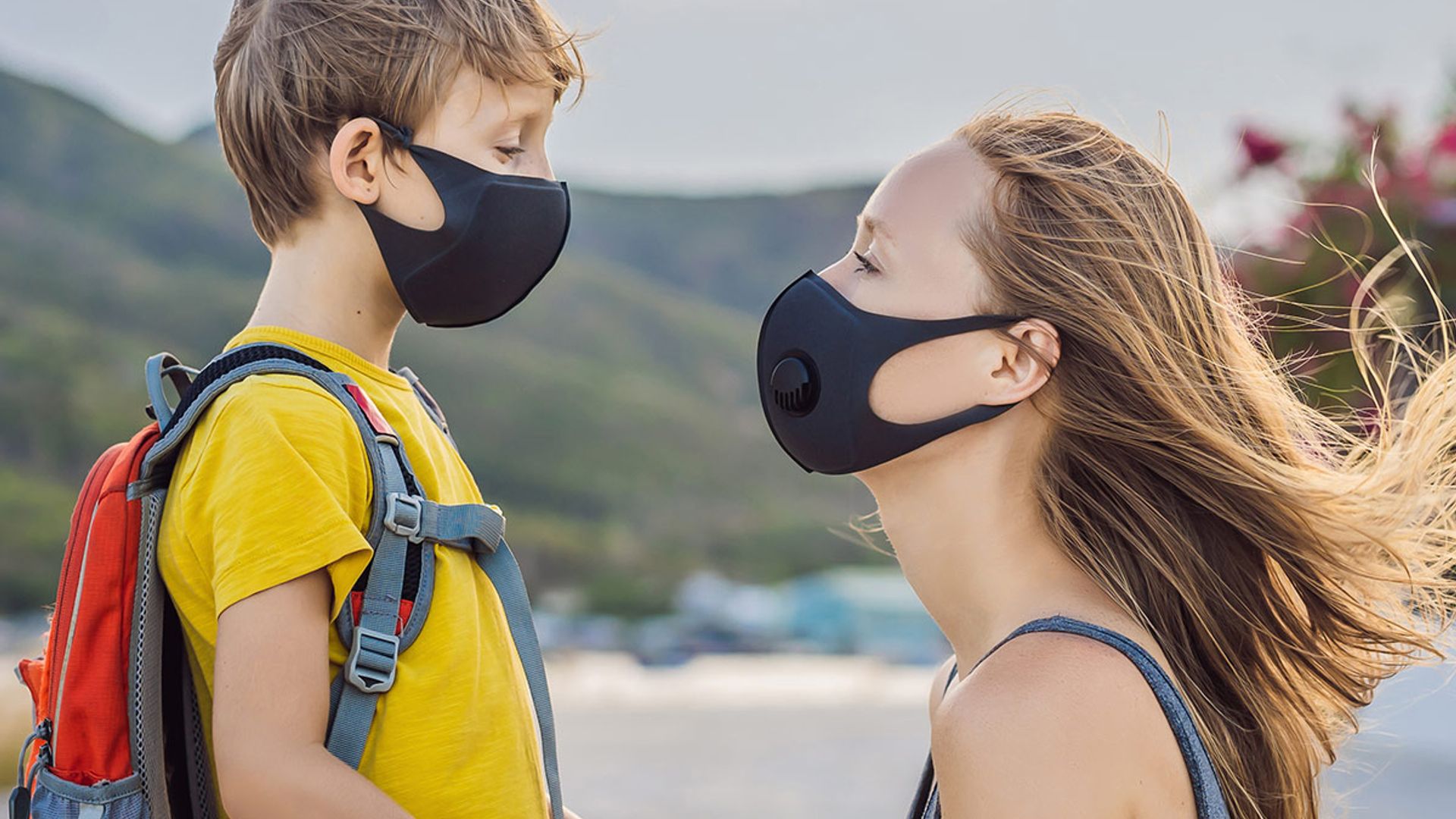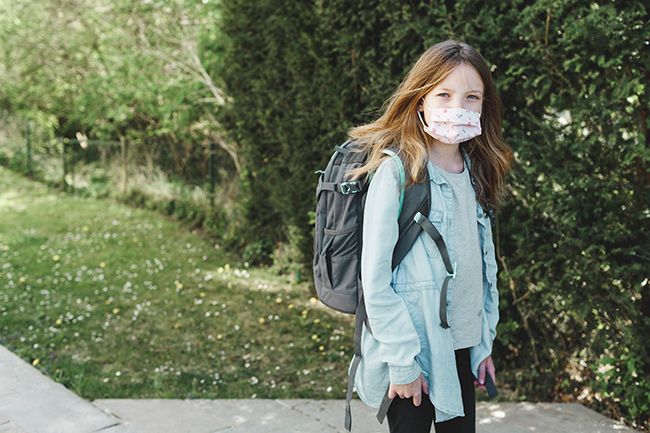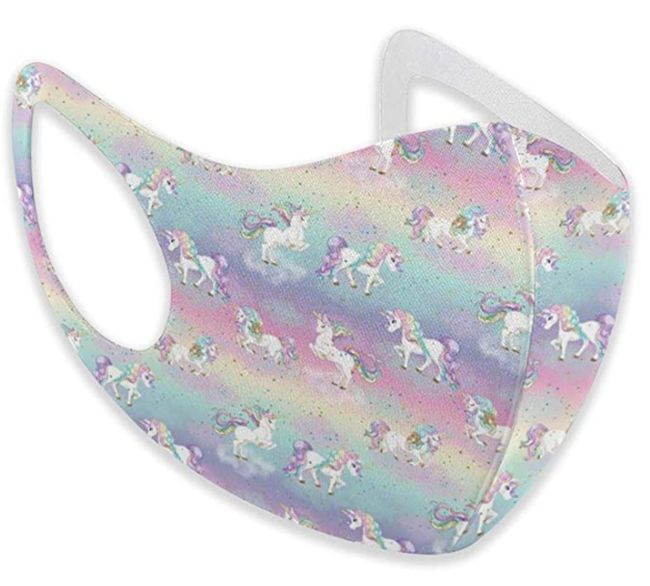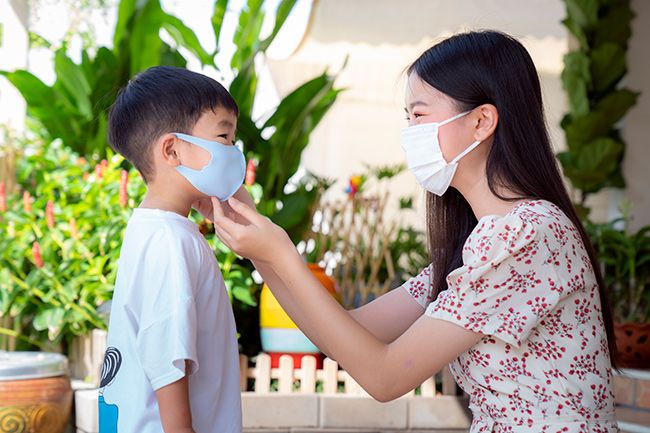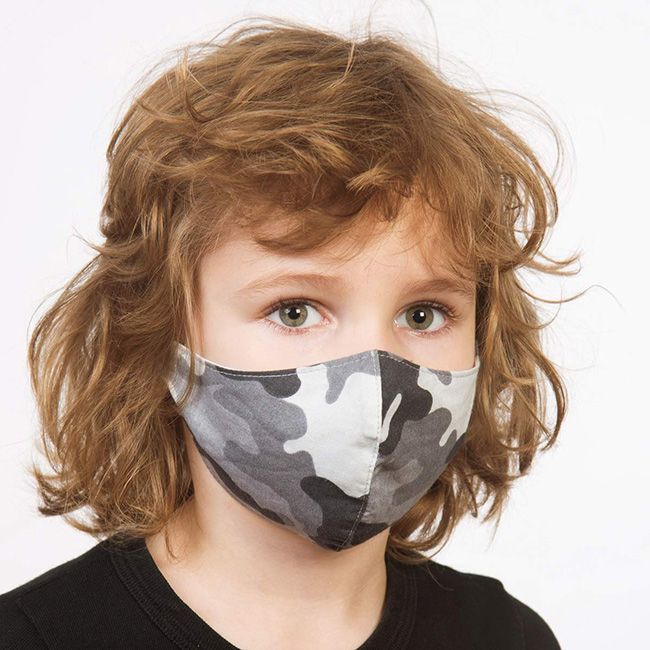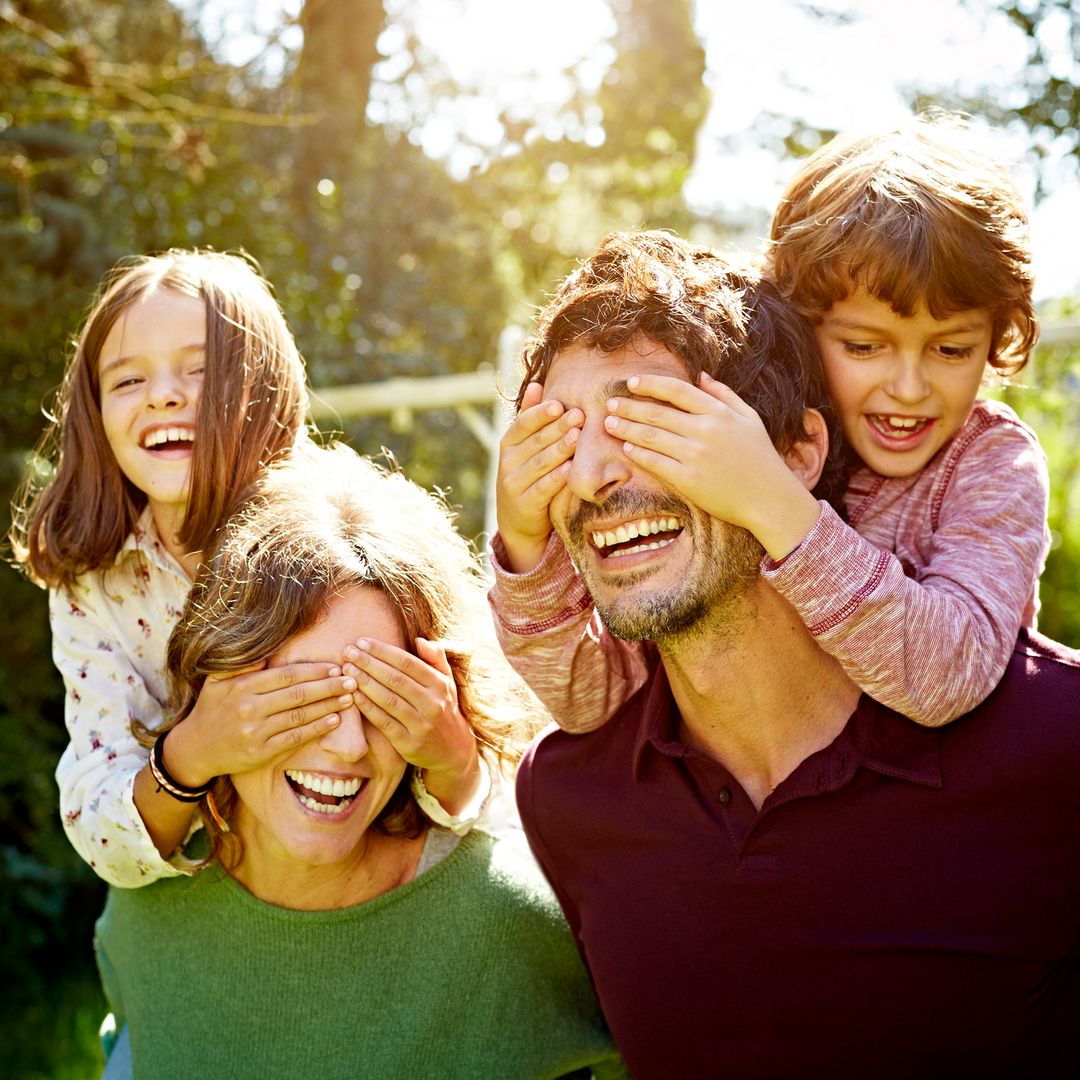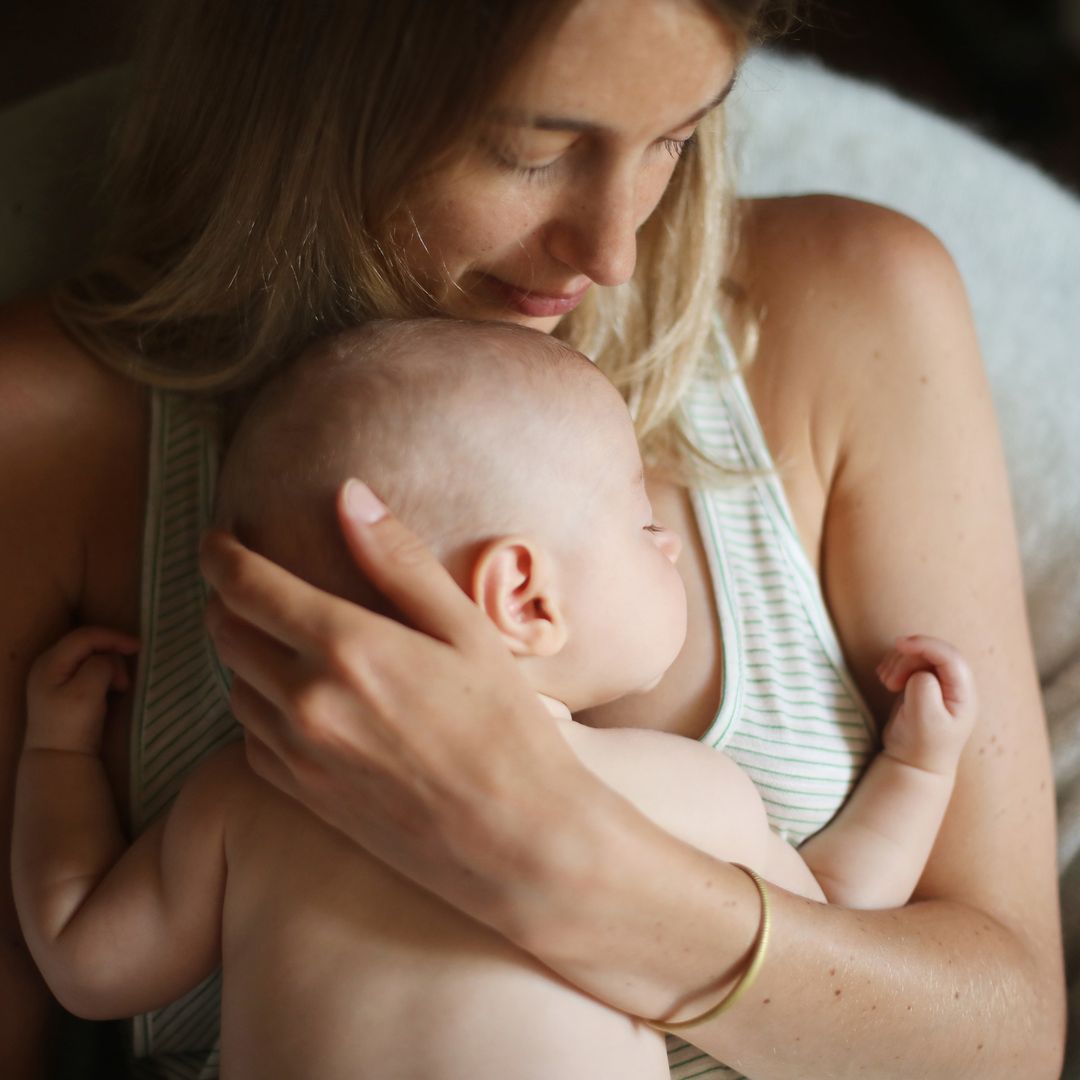From 24 July, face coverings will be mandatory in shops and on public transport in the UK to help halt the spread of coronavirus.
But while these new regulations are fairly straightforward for adults, there has been some confusion over whether children need to wear masks too. Do they need to wear face coverings in shops like adults? What about toddlers? How can children put on and remove a face mask safely?
We've rounded up all the latest official advice below…
MORE: The ultimate face masks guide: the rules, styles to buy and everything you need to know
WATCH: Amazing face mask hack for glasses
What is a face covering for use in the COVID-19 outbreak?
According to the Government's website, a face covering is 'something which safely covers the nose and mouth'. Reusable or single-use face coverings are fine and 'you may also use a scarf, bandana, religious garment or hand-made cloth covering but these must securely fit round the side of the face'.
Do children need to wear a mask?
Children under the age of 11 do not need to wear a face covering. If you would like your child to wear a mask, they can do so but only if they are over the age of three. Masks should not be worn by children who find them difficult to manage correctly. See our instructions below on how to wear a mask correctly.
Are any children over the age of 11 exempt from wearing a mask?
Yes. The government specifies that if your child or teenager over age 11 has any of the following, they do not need to wear a face covering:
- Not being able to put on, wear or remove a face covering because of a physical or mental illness or impairment, or disability
- If putting on, wearing or removing a face covering will cause you severe distress
- If you are travelling with or providing assistance to someone who relies on lip-reading to communicate
- To avoid harm or injury, or the risk of harm or injury, to yourself or others
- To avoid injury, or to escape a risk of harm, and you do not have a face-covering with you
- To eat or drink, but only if you need to
- To take medication
- If a police officer or other official requests you remove your face covering
Kids rainbow unicorn mask, £6.68, Amazon
SHOP NOW
Why do people over 11 years need to wear a face-covering?
According to the Government, scientific evidence shows that when used correctly, wearing a face covering could reduce the spread of coronavirus droplets in 'certain circumstances', which will help to protect other people.
The website says: "Coronavirus (COVID-19) can spread predominantly by droplets from coughs, sneezes and speaking. These droplets can also be picked up from surfaces - if you touch a surface and then your face without washing your hands first. This is why social distancing, regular hand hygiene, and covering coughs and sneezes are so important in controlling the spread of the virus."
How do you put on a face-covering correctly?
A mask should cover both your nose and mouth and allow you to breathe comfortably. It needs to be fit closely against the side of your face and secure behind the ears with ties or loops. A comfortable, breathable fabric such as cotton is recommended with ideally at least two layers of material.
Before putting on your face mask, wash your hands with soap and water for 20 seconds or use hand sanitiser and avoid touching the area on the mask which has touched your nose and mouth in case it contains the virus. The government website says: "Change the face covering if it becomes damp or if you’ve touched it."
Kids washable cotton mask, £9.99, Amazon
SHOP NOW
How do you take off a face covering correctly?
First, wash your hands with soap and water for 20 seconds or use hand sanitiser, then remove the mask only touching the straps or ties by the ears. Wash your hands again as before. Never share the mask with another person.
If the mask is single-use, put it in the rubbish bin (not the recycling bin). If it is a reusable mask, wash it at 'the highest temperature appropriate for the fabric'.
HELLO!'s selection is editorial and independently chosen – we only feature items our editors love and approve of. HELLO! may collect a share of sales or other compensation from the links on this page. To find out more visit our FAQ page.
